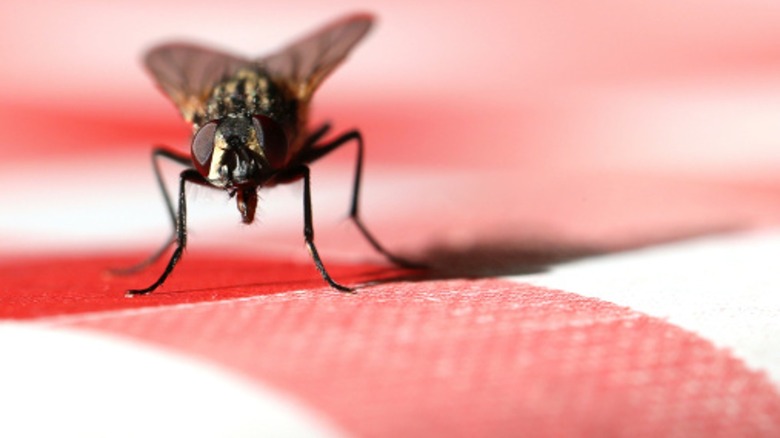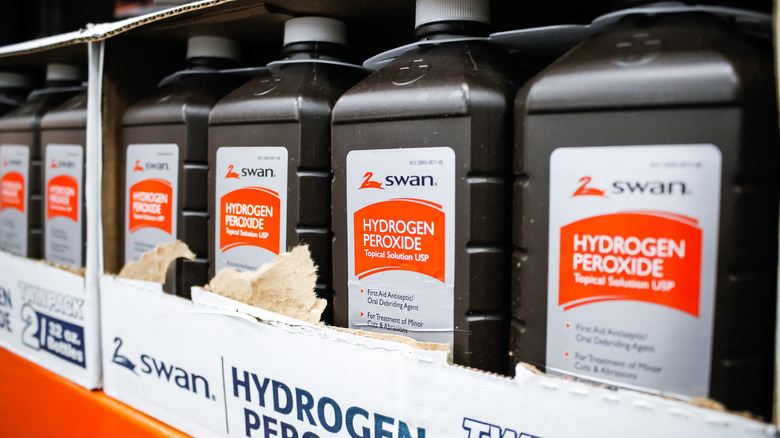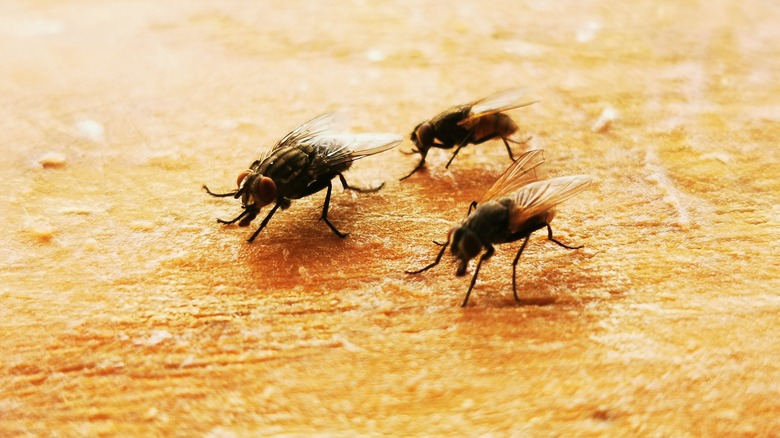Does Hydrogen Peroxide Deter Flies? Our Expert Weighs In
If you have ever researched how to get rid of flies once and for all — for example, houseflies or pesky fruit flies — you probably came across all sorts of questionable recommendations. One tip that frequently makes its rounds on the internet involves the use of hydrogen peroxide. Some believe that you can create a solution of one-third hydrogen peroxide and two-thirds water in a spray bottle to use as a fly repellent. The idea is that you can apply this spray to surfaces that flies tend to land on to keep them away, but is there any legitimacy to this hack?
Matt Rogers, CEO and co-founder of Pestie, shared the answer while speaking exclusively to House Digest. He explained that while flies do not like the smell of hydrogen peroxide, commercially produced products are a more reliable solution.
The effectiveness of this hack can also vary depending on how often you apply the solution and where you choose to spray it. "If you only spray a surface but have something like food nearby that the fly is attracted to, it might not work as well," Rogers explained. To make things more complicated, it is difficult to determine exactly how much hydrogen peroxide is required for this method to be effective due to the limited scientific research and testing on using it to keep flies away. If you are looking for a more trusted fly repellent, you might want to stick with commercially produced products.
Hydrogen peroxide is not as reliable as commercial products
Using the scent of hydrogen peroxide to keep flies away is not as reliable as commercial products for a few reasons. "Compared to home remedies, commercially made products will contain ingredients that have undergone studies to prove efficacy, dosage requirements, and other scientific testing," Rogers explained while speaking exclusively to House Digest. "If you are trying to deter flies based on scent alone things like wind, humidity levels, and other environmental factors are going to have an impact. Home remedies can be more of a guessing game and may not always be effective."
Unfortunately, all of these factors can alter the effectiveness of the hydrogen peroxide spray, so you really have very little control over how well it works. Although traditional products are more reliable, you might not be a fan of using them in and around your home. Thankfully, there are a few other homeopathic alternatives that you can try out to get rid of flies instead. You might have luck using apple cider vinegar. "Flies are attracted to the smell of apple cider vinegar," Rogers explained. "You can use a bowl with a small amount of apple cider vinegar covered with plastic wrap with holes poked in it. Flies can then enter and become trapped."
Other homeopathic methods for keeping flies away
Rogers shared a few other homeopathic methods for keeping flies out of your house naturally that you may also want to consider. "Flies dislike the scent of basil and mint," the expert explained while speaking exclusively to House Digest. "Placing pots of these herbs around your home can act as a deterrent while smelling good too, and be great for cooking!"
You may have noticed mention of using essential oils to fight ants floating around on the internet as well. Rogers shared how you can use this method effectively for deterring flies. "Essential oils such as eucalyptus, lavender, and lemongrass are known to repel flies," he explained. "Mix with water and use as a spray."
However, before you move forward with any of these methods, consider the following advice from Rogers. "Do your research and take the time to talk to a professional if you're unsure about a product, or home remedy," he shared. "For the safety of yourself and those around you!"


